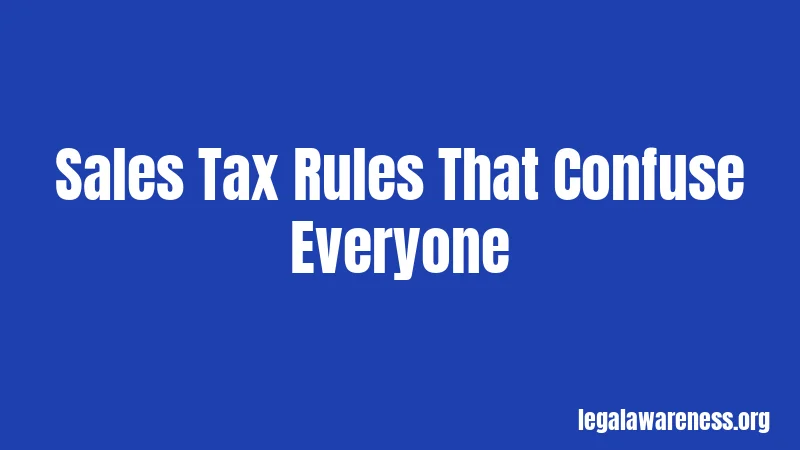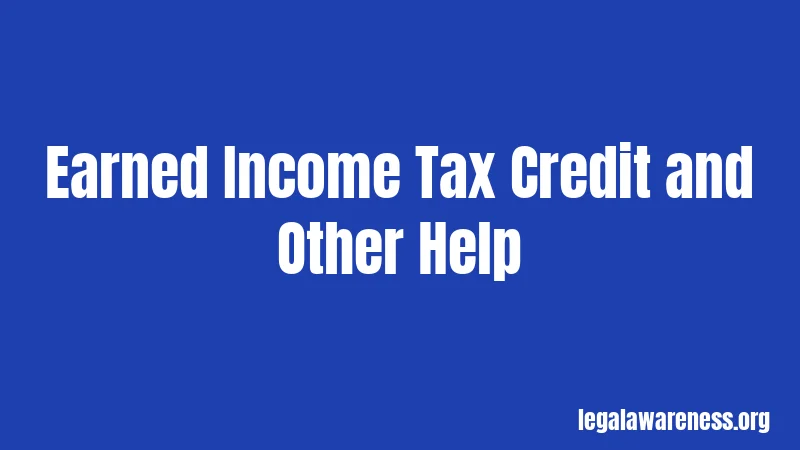Pennsylvania Tax Laws in 2026: What Actually Applies to You
Most people have no idea how Pennsylvania’s tax system works. Seriously. But once you understand the basics, it’s way simpler than you think. Let’s break down what you actually need to know.
Pennsylvania has its own income taxes, sales taxes, property taxes, and a bunch of other rules. The state takes a different approach than the federal government. Some things are taxed here that might surprise you. Others work totally differently than you’d expect.
What’s Actually Taxed in Pennsylvania?

Here’s the thing about Pennsylvania: it’s not as harsh as some states. The state income tax rate? It’s a flat 3.07 percent. That means everyone pays the same percentage, no matter how much you earn. Pretty straightforward, right?
But Pennsylvania taxes more than just income. You’re gonna have sales tax too. You’ve got property taxes on homes and land. Some items are even taxed differently. And if you work for yourself, there are extra rules you need to know about.
How Income Tax Works Here
Pennsylvania has a flat income tax rate of 3.07 percent. This applies to wages, salaries, and other income you earn from working. It’s actually one of the lower state income tax rates in the country.
But wait, there’s more to it. Pennsylvania only taxes earned income. Investment income like interest, dividends, and capital gains? Not taxed by the state. That’s actually a huge advantage if you’re investing.
Here’s what you need to do: your employer withholds the taxes automatically from your paycheck. You don’t have to do anything. At the end of the year, you file a state return (Form PA-40) to make sure the right amount was withheld. If they took out too much, you get a refund. If they didn’t take out enough, you owe the difference.
Are you self-employed or own a business? This gets a little different. You’ll calculate your own tax and pay it directly. Most self-employed people make quarterly payments so they don’t get hit with a huge bill at the end of the year.
Sales Tax Rules That Confuse Everyone

Pennsylvania has a 6 percent sales tax. But here’s where it gets interesting: not everything is taxed the same way.
Food is the big one. Most groceries are not taxed in Pennsylvania. So when you buy milk, bread, or produce at the store, you don’t pay sales tax. But if you buy prepared food or eat at a restaurant? Full tax applies.
Clothing has some special rules too. Regular clothes under $110 are not taxed. But if you buy a fancy coat that costs $150, you only pay tax on the amount over $110. So you’d pay tax on just $40 of that purchase.
Wondering what counts as prepared food? Let me break it down. Hot food, even if you buy it from a grocery store deli, is taxed. Cold food you grab and go is usually not taxed. It’s weird, but that’s how it works.
Here’s an important distinction: the tax rate is the same statewide at 6 percent. Some people think Pennsylvania has local sales tax like other states. It doesn’t. You pay the same 6 percent whether you’re shopping in Philadelphia or in a small rural town.
Property Taxes: The Big Expense
Pennsylvania has property taxes, but they’re a bit different from what you might expect. There’s no statewide property tax. Instead, each county, school district, and municipality sets its own rate.
This means your property tax bill depends entirely on where you live. A house worth $300,000 in one area might have a $5,000 annual tax bill. The same house in another area could be $8,000 or more. It really varies.
Property taxes are calculated based on the assessed value of your property. The assessment isn’t always the same as what you paid for it. Assessments can be outdated. Some people get their property reassessed to lower their taxes.
Homestead exemptions can help lower your bill. If your house is your primary residence, you might qualify for an exemption that reduces the assessed value. That means a lower tax bill. But you have to apply for it through your local assessor’s office.
Earned Income Tax Credit and Other Help

Not making a lot of money? Pennsylvania offers help through the Earned Income Tax Credit. This is a credit that reduces the tax you owe. If you qualify, you could get money back at tax time.
The Earned Income Tax Credit is based on your income and family situation. It’s designed to help working families. You don’t have to owe taxes to get this credit either. Even if you didn’t owe anything, you could still receive a refund if you qualify.
To claim this credit, you file Form PA-40 with your state return. You’ll need to show your income and family information. It’s pretty straightforward on the form itself.
Self-Employment and Business Taxes
Running your own business in Pennsylvania? You need to know a few extra things. The state income tax still applies at 3.07 percent on your net business income.
But here’s what makes it tricky. You pay both state and federal self-employment tax. The federal tax funds Social Security and Medicare. The state tax is just regular income tax. So you’re actually paying two separate taxes on the same income.
Most business owners estimate their taxes quarterly and make payments four times a year. This prevents a big surprise at tax time. If you don’t make these payments, you could face penalties.
Keep good records of your income and expenses. The better your records, the easier it is to file your return. Plus, you can deduct business expenses, which lowers your taxable income.
Special Taxes You Might Not Know About
Pennsylvania has some other taxes that catch people off guard. There’s a tax on cigarettes and other tobacco products. The rate is $2.60 per pack for cigarettes. That’s pretty high.
Alcohol has its own taxes too. Beer, wine, and liquor all have excise taxes. These are built into the price at the store, so you might not notice them. But they add up.
If you buy a car or motorcycle, you’ll pay sales tax on that purchase too. The 6 percent rate applies just like it does for regular items.
Here’s something that surprises people: Pennsylvania doesn’t have a state capital gains tax. So if you sell an investment or property for a profit, you don’t pay state tax on that gain. This is one of the biggest advantages of living here compared to other states.
Tax Filing Deadlines and Requirements
Your Pennsylvania tax return is due April 15 each year, same as your federal return. You can file together or separately. Most people file them at the same time since they use similar information.
If you can’t meet the deadline, you can request an extension. This gives you until October 15 to file. But remember: the extension is for filing, not for paying. If you owe taxes, they’re still due by April 15. You’ll pay penalties and interest on late payments.
Are you required to file? If you had any income in Pennsylvania, you probably need to file a return. It doesn’t matter if you owed taxes or not. Even if you get a refund, you should file to claim it.
New residents and people who moved out of state should double-check the rules. You might need to file a part-year return. The state will let you know if you owe anything for the time you lived here.
Frequently Asked Questions
Do I have to pay Pennsylvania income tax if I don’t live there? No. You only pay Pennsylvania income tax if you live there, work there, or own a business there. If you moved out of state, you don’t owe state taxes on income you earn after you move. But you might owe for the part of the year you lived in Pennsylvania.
Is Pennsylvania income tax really that low compared to other states? Yes. At 3.07 percent, Pennsylvania’s flat tax is below the national average. Many states have progressive taxes where high earners pay more. Pennsylvania’s flat rate actually helps higher-income earners compared to states with progressive systems.
What if I owe Pennsylvania taxes but can’t pay right now? Contact the Pennsylvania Department of Revenue. They offer payment plans for people who owe money. You can set up a monthly payment arrangement. You’ll still owe penalties and interest, but at least you can pay over time.
Can I deduct Pennsylvania taxes on my federal return? Yes, but with limits. You can deduct state and local taxes (SALT) on your federal return up to $10,000 per year. This is helpful if you have high property taxes in addition to state income taxes.
Does Pennsylvania tax retirement income? It depends on the type of retirement income. Social Security is not taxed. But distributions from IRAs and 401(k)s are taxed as income. Pension income has special rules. Some types of pensions are exempt from state tax.
How to File and Get Help
Filing your Pennsylvania return is pretty simple. You can download the forms from the Pennsylvania Department of Revenue website. The most common form is PA-40 for income tax.
You can file electronically, which is faster and easier. E-file gets processed quicker, and you get your refund faster. Or you can mail in a paper return, but it takes longer.
If you need help, the Pennsylvania Department of Revenue has resources on their website. You can also hire a tax professional. A CPA or tax preparer can make sure you’re doing everything right.
Some people qualify for free tax help. If you earn less than $60,000, you might be able to use VITA (Volunteer Income Tax Assistance). These are free services run by volunteers who help people file taxes.
The Bottom Line
Pennsylvania’s tax system isn’t as complicated as it seems once you break it down. You pay 3.07 percent income tax, 6 percent sales tax on most things, and property taxes set by your local area.
The good news: Pennsylvania doesn’t tax investment income or capital gains. That’s a huge advantage for people who are investing. If you’re self-employed, make sure you understand quarterly payments. If you own property, look into homestead exemptions.
Now you know the basics. Stay informed about any changes to the tax code. And when in doubt, reach out to the Pennsylvania Department of Revenue or talk to a tax professional. You’ve got this.
References
Pennsylvania Department of Revenue
